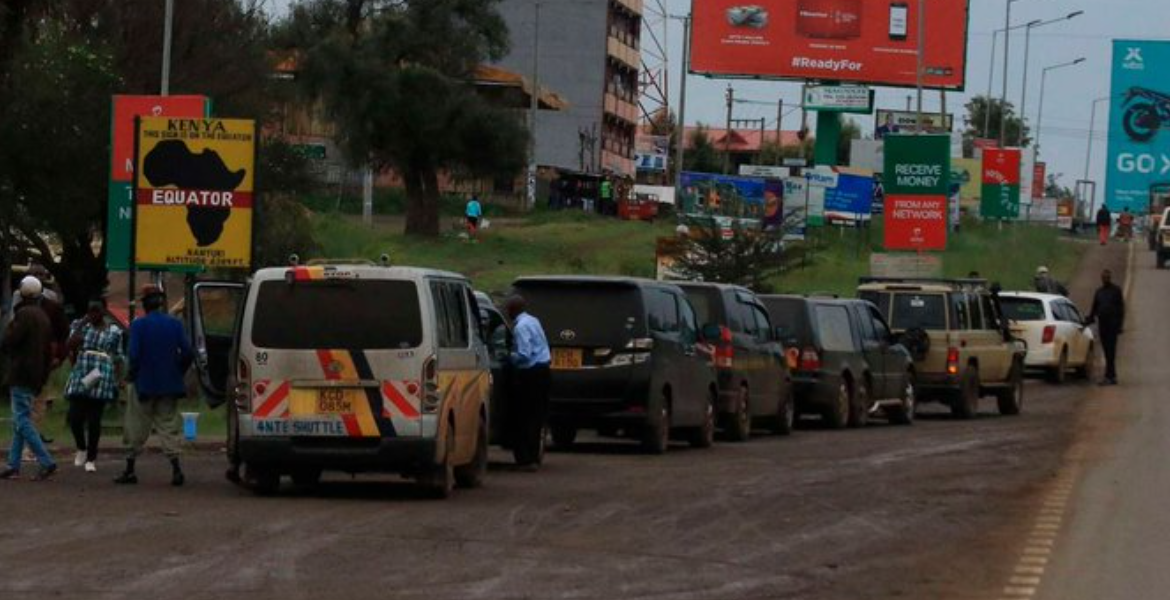
Equator Crossing
- 114 views
The Equator Crossing market in Ndaragua Constituency, Nyandarua County, stands largely abandoned nearly two decades after the notorious Mungiki gang wreaked havoc in the area.
Once a bustling hub for traders and tourists, the market is now characterized by a sparse presence, with a handful of boda boda riders as the primary operators. The lingering impacts of the Mungiki gang's violent history have deeply affected the community. Commuters now largely bypass the Equator Crossing bus stop favouring the Gwa Kung’u market to catch boda bodas. This shift marks a stark contrast to the pre-Mungiki era when Equator Crossing thrived as a vibrant business centre, where curio shops provided livelihoods to many families by catering to both local and international visitors.
The market's previous success attracted traders from throughout the country, including Mr. Mwaura Kienja, who leveraged his time there to acquire a 10-acre farm in Nyonjoro village within a year. However, memories of the Mungiki gang's intimidation and extortion still haunt former residents and traders alike. Mr Kienja reminisces about the market's peak, where he profited significantly by selling carvings sourced from Ukambani and the coastal region.
Other vendors specialized in fruits, local produce, and traditional attire, while cultural performances added to the market's appeal. This prosperity, however, abruptly ceased around 2006 when the gang transformed the area into a battleground, engaging in violent extortion of traders, tourists, and motorists. Priscillah Waiganjo, a vendor of traditional attire, recounts the gang's tactics, detailing a toll station where funds were routinely extorted from both travellers and vendors before the gang expanded their targets to motorists on the busy Nakuru-Nyeri highway.
Gwa Kung’u market became synonymous with the Mungiki gang's activities, drawing parallels to their historical roots in the 1950s Mau Mau rebellion against British colonial rule. Following a deadly outbreak of violence in a Nairobi slum, the gang was officially banned in 2002, yet its criminal enterprises, including extortion and murder, persisted. The market's decline was further exacerbated by violence, highlighted by an attack on Mr Chege Chomba, who suffered severe head injuries while his brother lost his life during an incident involving machete-wielding assailants.
This attack, characterized by the assailants singing war songs as they emerged from the nearby forest, instilled fear among traders, prompting many to abandon their stalls and deterring tourists from the region.
Despite its proximity to Ndaragua Forest—part of the Aberdare ecosystem that draws tourists to the Aberdare, Ndaragua, and Mt. Kenya areas—the market's potential remains largely unrealized due to Mungiki-related criminality.
Although the region is experiencing relative calm now, and a modern hotel is in development, the legacy of violence continues to deter traders and commuters. Efforts to revive tourism at Equator Crossing are being spearheaded by Tourism and Wildlife Cabinet Secretary Rebecca Miano, alongside the Nyandarua Tourism Department. This initiative aims to directly support 20 curio shop owners while benefiting over 100 families indirectly. Additionally, local youth groups are set to oversee sanitation efforts at the market, with plans to replicate this model in Gwa Kung’u.
These initiatives aim to erase the shadow of past violence and harness Equator Crossing's inherent tourist and business potential. However, the Nyandarua Interfaith Council Chairperson, Josam Kariuki, raises concerns about the current political climate, warning of the potential resurgence of youth groups in central Kenya.
